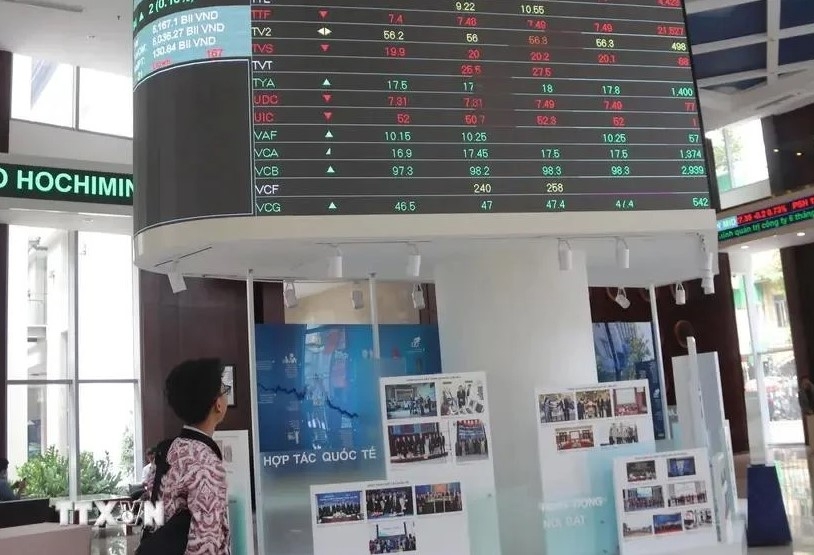Capital market could be major financial source for private sector: WB
Society – Economy - Ngày đăng : 22:50, 29/09/2024
In the Taking Stock August report “Reaching New Heights in Capital Markets”, WB experts reported that underpinned by robust macroeconomic conditions, Vietnam’s capital market has developed strongly over the past decade.
Healthy economic growth, a stable exchange rate, low inflation, and political stability have positioned the market to match with regional markets in terms of their relative size. The stock market reached over 90% of GDP in 2023, which is on par with Indonesia. Market capitalisation grew from 38% to 58% of GDP, and even hit a peak of 93% in 2021.
However, when evaluated through its success in intermediating finance, Vietnam’s capital market indicators reveal a unique opportunity for further growth.
Regarding funding, despite a high equity market capitalization, the amount of funds raised through the stock exchanges over the past five years has been relatively small.
The WB reported that without the large weight of institutional investors in the corporate securities market, individual investors tend to dominate, creating volatility from herd behavior. This has partly contributed to the accumulation of risk within the corporate bond market, and stunts the development of its financial role for the corporate sector.
They said not only is the average size of companies in the market smaller than in regional countries, the availability of shares is also adversely impacted by foreign ownership limits applied to certain industries.
A wider investor base, particularly an expanded presence of institutional investors, could help stabilise stock prices, they suggested.
Since the health of the equity market is seen as a barometer of the nation’s market economy, it is crucial to maintain the long-term growth trajectory with reduced volatility.
Vietnam needs to lure significant international investment to drive its long-term growth so as to deliver on its high-income nation target.
Vietnam is currently classified as a frontier market by MSCI, and FTSE Russell – two of the world’s largest index providers by amounts of funds following their indices. An upgrade to emerging market status would be a driver draw in foreign investors, and equity and liquidity of sufficient size.
With the elevation, the securities market could mobilise US$5 billion, and inflows could reach US$25 billion by 2030 if strong reforms are put in place, and the global investment climate remains healthy.
According to Barry Weisblatt David, Head of Research at VNDirect Securities JSC, bank credit will grow 14% this year, causing listed firms to increase 18%.
Relishing the prospect of a positive scenario, he said the VN-Index will close 2024 with over 1,400 points, making a Price-to-Earnings ratio of 14.8x feasible.
He suggested investors pay attention to the banking and steel sectors, saying they are the best sectors to invest in toward the remainder of the year.

